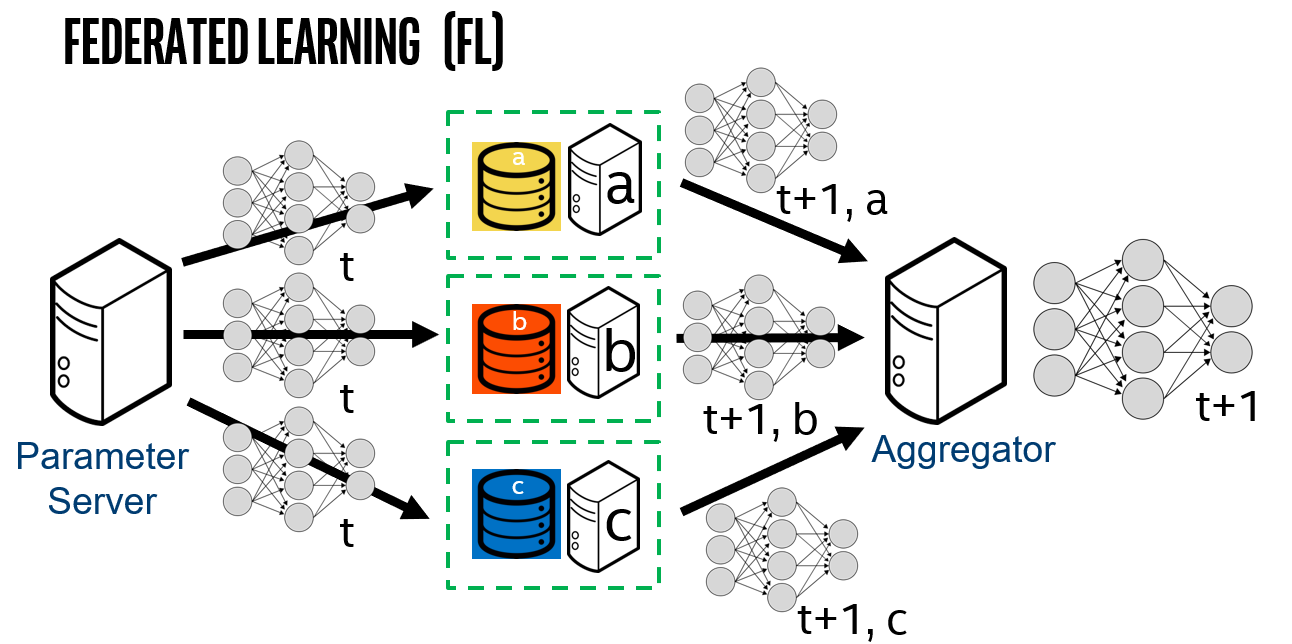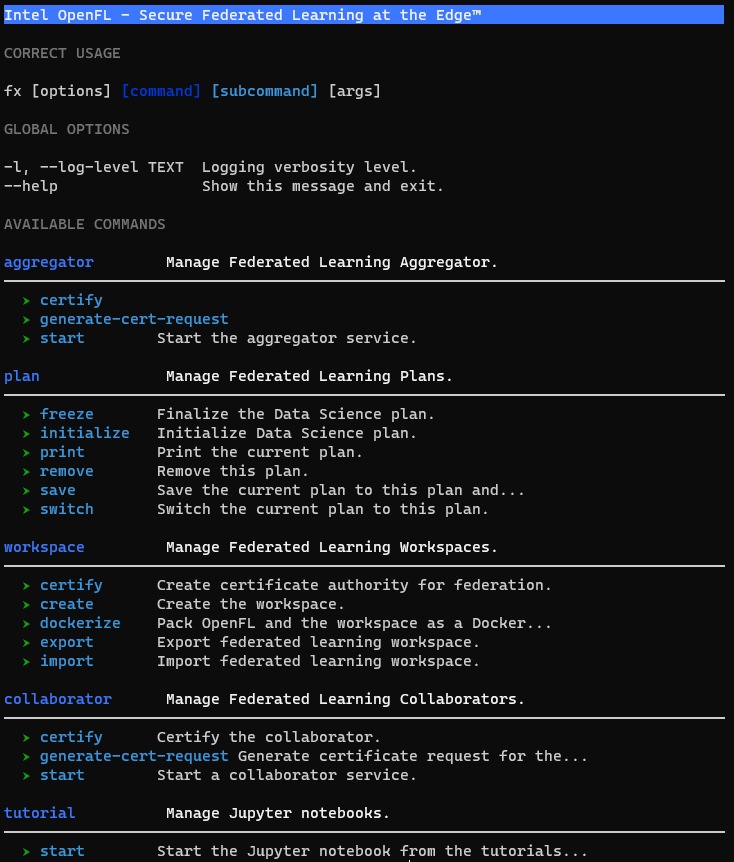Federated learning is a distributed machine learning approach that enables organizations to collaborate on machine learning projects without sharing sensitive data, such as, patient records, financial data, or classified secrets (Sheller MJ, et al., 2020; Sheller MJ, et al., 2019; Yang Y, et al., 2019; McMahan HB, et al., 2016).
The basic premise behind federated learning is that the model moves to meet the data rather than the data moving to meet the model. Therefore, the minimum data movement needed across the federation is solely the model parameters and their updates.
Open Federated Learning (OpenFL) is a Python 3 project developed by Intel Labs and Intel Internet of Things Group.
Check out our online documentation to launch your first federation. The quickest way to test OpenFL is through our Jupyter Notebook tutorials.
For more questions, please consider joining our Slack channel.
- OS: Tested on Ubuntu Linux 16.04 and 18.04.
- Python 3.6+ with a Python virtual environment (e.g. conda, recommended version: 4.9 and above)
- TensorFlow 2+ or PyTorch 1.6+ (depending on your training requirements). OpenFL is designed to easily support other frameworks as well.
This project is licensed under Apache License Version 2.0. By contributing to the project, you agree to the license and copyright terms therein and release your contribution under these terms.
- Docs and Tutorials: https://openfl.readthedocs.io/en/latest/index.html
- Issue tracking: https://github.com/intel/openfl/issues
- Slack channel
@misc{reina2021openfl,
title={OpenFL: An open-source framework for Federated Learning},
author={G Anthony Reina and Alexey Gruzdev and Patrick Foley and Olga Perepelkina and Mansi Sharma and Igor Davidyuk and Ilya Trushkin and Maksim Radionov and Aleksandr Mokrov and Dmitry Agapov and Jason Martin and Brandon Edwards and Micah J. Sheller and Sarthak Pati and Prakash Narayana Moorthy and Shih-han Wang and Prashant Shah and Spyridon Bakas},
year={2021},
eprint={2105.06413},
archivePrefix={arXiv},
primaryClass={cs.LG}
}
Please report questions, issues and suggestions using:
This project builds on the Open Federated Learning framework that was developed as part of a collaboration between Intel and the University of Pennsylvania (UPenn) for federated learning. It describes Intel’s commitment in supporting the grant awarded to the Center for Biomedical Image Computing and Analytics (CBICA) at UPenn (PI: S. Bakas) from the Informatics Technology for Cancer Research (ITCR) program of the National Cancer Institute (NCI) of the National Institutes of Health (NIH), for the development of the Federated Tumor Segmentation (FeTS, www.fets.ai) platform (grant award number: U01-CA242871).
FeTS is an exciting, real-world medical FL platform, and we are honored to be collaborating with UPenn in leading a federation of international collaborators. The original OpenFederatedLearning project and OpenFL are designed to serve as the backend for the FeTS platform, and OpenFL developers and researchers continue to work very closely with UPenn on the FeTS project. The FeTS-AI/Front-End shows how UPenn and Intel have integrated UPenn’s medical AI expertise with Intel’s framework to create a federated learning solution for medical imaging.
Although initially developed for use in medical imaging, this project is designed to be agnostic to the use-case, the industry, and the machine learning framework.







